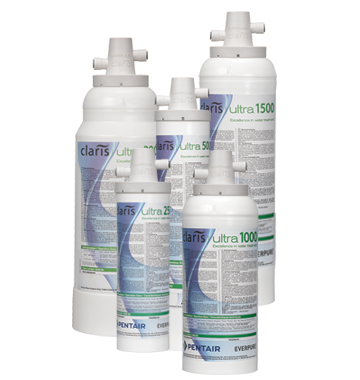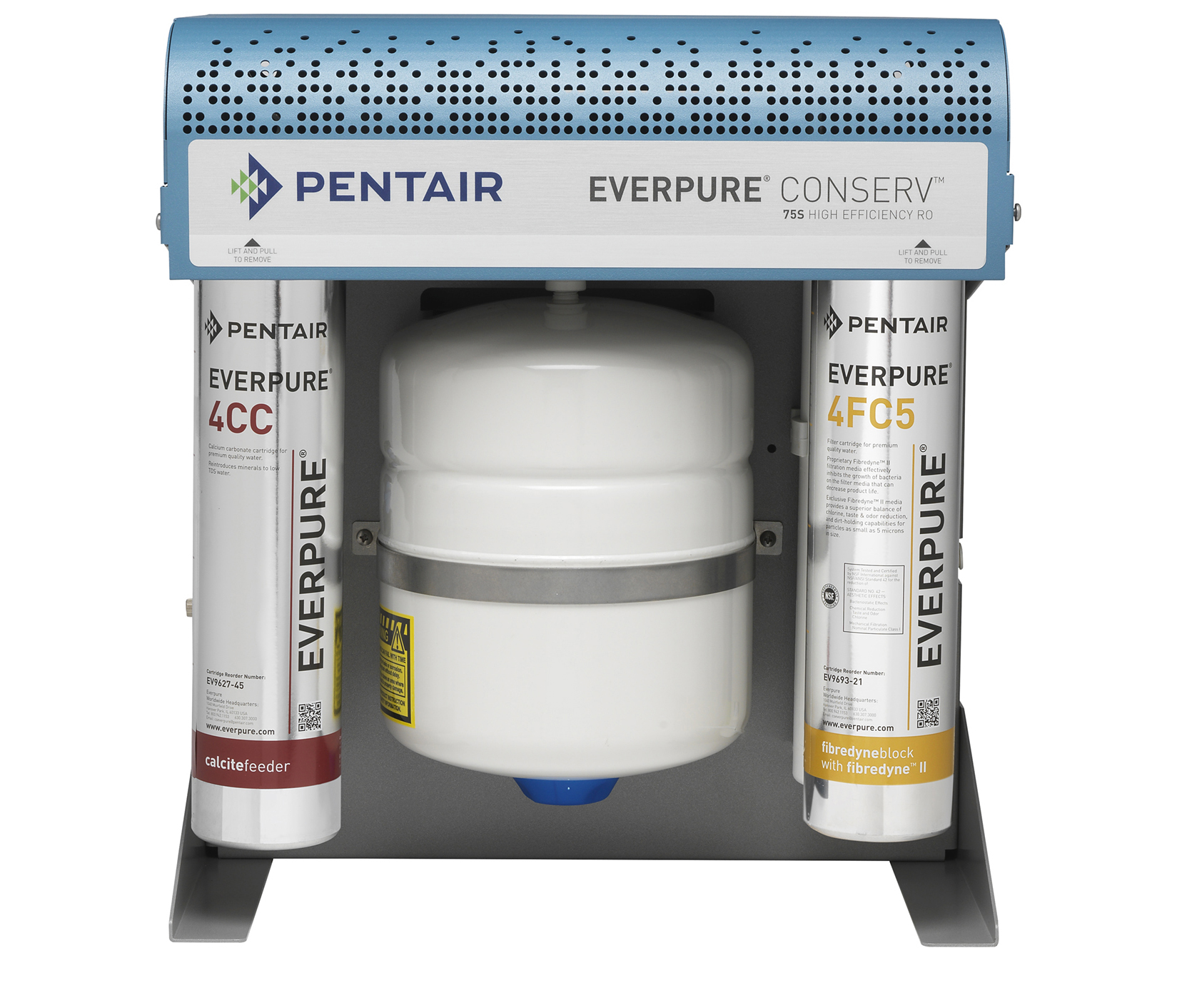Pentair Moment: Maxine faces her daily grind… with a daily grind
Water quality makes a big difference to coffee, and can keep your customers returning everyday …
Another happy customer. Maxine is ready for her day and she will be back tomorrow. She knows a thing or two about chemistry and she owns a fine coffee machine too. But she knows her limits and, good though her home-brewed coffee may be, it’s not a patch on the real thing. She trusts her favourite coffee shops with her best drink of the day. She appreciates the difference they bring to her daily fix and she is prepared to pay for it. It’s why they don’t want to lose Maxine and customers like her. However, they are only as good as the last cup they served, so believe consistency, as well as quality, is key to their success.
Good water + good coffee = a great experience
When it comes to the perfect coffee, there is pretty long list of ingredients for success. Your barista will ensure things like bean grinding, tamping technique and milk skills are all in safe hands. And, as any good barista will remind us, coffee is 98% water so if the water isn’t good, neither is the brew. Good water – and importantly consistently good water – is a vital to the flavour. So, what makes good water for coffee, why does it matter and what can you do to make yours better?

Need water science be that hard?
Actually, the science isn’t that hard but your water can be and that slight hardness might be helping your coffee. Without drowning in science let’s look at some basic chemistry to understand what’s going on.
Pure water, i.e. two parts hydrogen and one part oxygen, is rarely just that. It almost always contains other stuff, good and bad, picked up along the way. Typically, these are minerals like calcium and magnesium which make the water ‘harder’. In excessive quantity these minerals can cause scale and damage to appliances … like coffee machines. It is why we frequently remove them from water with salt softening. However science has shown that those very minerals improve the extraction of flavour from the coffee to the water. Hardness is expressed in part per million ( ppm) and The Speciality Coffee Association (SCA) recommends 68 ppm as the optimum hardness for flavour extraction. Any less and the flavour falls off. Any higher and there is no great taste benefit … which is just as well as any greater that this will start to scale up your precious coffee machine.
More about total dissolved solids
Calcium and magnesium are only part of the story. Collectively known as ‘total dissolved solids’ (TDS), there are many other minerals found in tap water that can have an impact on the flavour of coffee. Sodium for example can add a sweetness to the drink but if your customers detect a salty taste, your water probably has too much. Iron and copper can also be present, especially if your building has an older plumbing system and these minerals can leave a metallic taste in the mouth. Add to the mix; carbonates, chlorides, sulphates and pH, all of which can have an impact to the quality and consistency of the coffee you serve. So, if you haven’t already, it might be time to check the water that is keeping your coffee business afloat.
Let’s talk pH
The pH scales measure the acidity or alkalinity of water with less than seven being acidic and higher than seven being alkaline. Coffee is essentially an acid, so a slightly alkaline water produces a higher flavour extraction. However, using water much higher than a pH of eight can create neutralising gases which can reduce the speed of the flow of coffee through the machine. The SCA pH sweet spot for coffee is 6-8, anything outside that range and it may be time to consider treating your water.
Check what’s in your water
Most municipal water in Europe is potable for drinking, but it might not be doing your coffee brewing any favours. There are plenty of testing options available – choose one that gives an accurate and up-to-date analysis. If you discover that there are minerals in your water that are negatively impacting the flavour and quality of your coffee, or the efficiency of your coffee brewing equipment, here are some treatment options you can consider.
Salt Softening Treatment
This is the most common water treatment in domestic and commercial kitchens – you may already have a softener in your coffee shop. Yet, while salt softening will protect your equipment from scale, soft water is not optimal for brewing coffee. Water without some hardness minerals can yield a weak and flavourless brew.
Cartridge Filtration Treatment
A professional filtration system uses replaceable cartridges that can ‘fine-tune’ the water or tackle more demanding contamination problems. Available in a range of sizes and capacities, these cartridges sit at the inlet before the water enters the coffee machine. They remove minerals and contaminates than cause too much hardness, off-tastes or unpleasant odours. They can also protect your coffee making equipment from the corrosive effects of scale. Using ion exchange, the Pentair Everpure® Claris Cartridge range is specially designed to meet the precise standards of speciality coffee houses, boasts a mixing function, allowing treated water to be ‘blended’ with tap water for the optimum quality mix.
Reverse Osmosis Treatment
Driven by the demands of a more discerning coffee drinking public and the desire of coffee shops to deliver the highest quality and consistency across multiple locations, reverse osmosis treatment (RO) is becoming a frequent fixture in the commercial kitchen. An RO system is equipped with a sophisticated array of carbon pre-filtration, micro membrane filtration, conditioning cartridges and a storage tank. In RO treatment, the source water is first completely neutralised with everything removed, before it blends back in the required minerals, by a measured and controlled process. In this way, RO can deliver optimum water for the perfect, and repeatably perfect, coffee every time, anywhere. Today’s RO machines have a small footprint, are highly efficient in water consumption and represent the gold standard for coffee water treatment.
If you have a moment …
Now you know what to look for in your water and how it can impact your coffee, check out Pentair award-winning range of Everpure Water Treatment Solutions for coffee applications.
>> Pentair Everpure Claris Cartridge Range

The Pentair Everpure Claris Cartridge range is a quick-change, compact and highly effective cartridge system for treating water used in coffee houses. A system head houses a replaceable, five-stage filter cartridge which removes the minerals that can affect the flavour of the coffee and cause damage to equipment. With a combination of outstanding filtration technology and world-class engineering excellence, Pentair Everpure Claris delivers outstanding water for coffee, time after time.
For all round performance choose Everpure Claris Ultra and for the optimal in cartridge filtration check out Everpure Claris Prime.

Pentair Reverse Osmosis Technology offers the gold standard in water treatment for coffee houses. Water is forced through a semi permeable membrane separating water molecules from minerals, salts and trace metals at a level simply not possible with carbon filtration alone. Additionally, a calcite filter cartridge and blending valve allows users to specify the exact mineral content desired.
>> Visit us at World of Coffee
See Everpure Claris Prime, Pentair RO Systems and meet other members of the Pentair’s Water Treatment family at World of Coffee in Milan in June 2022.





